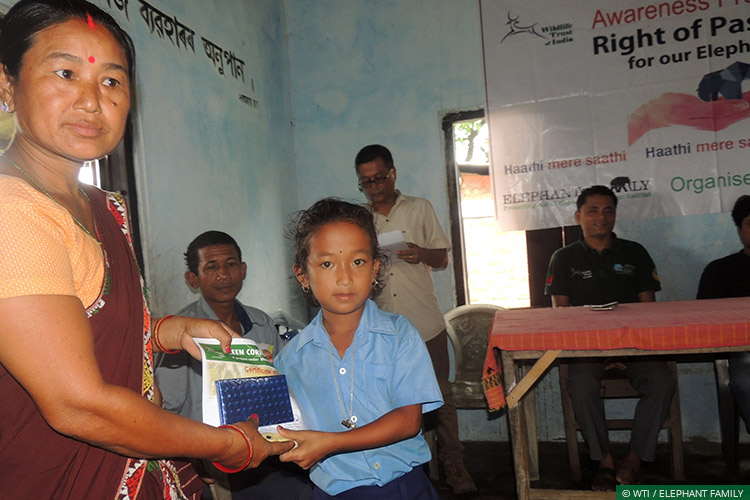


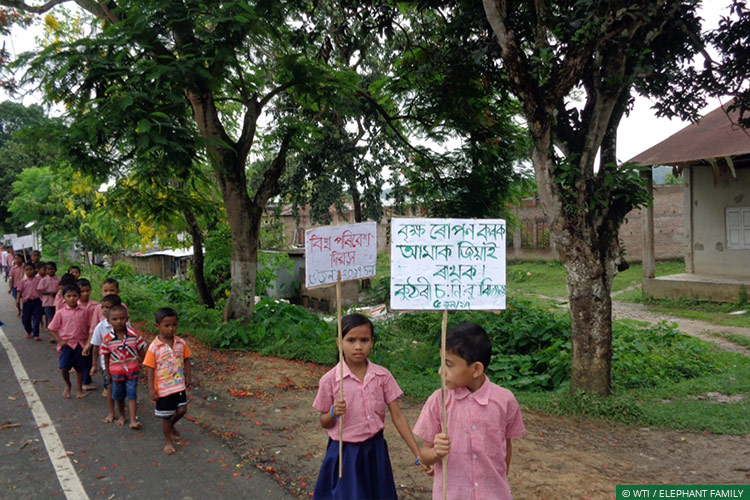
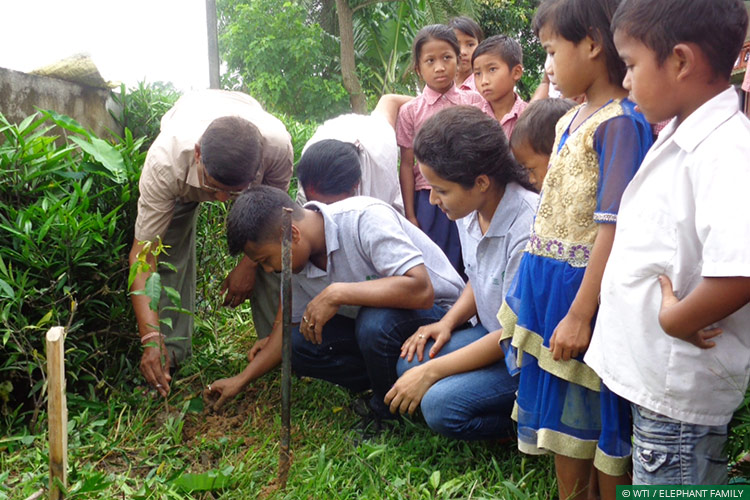
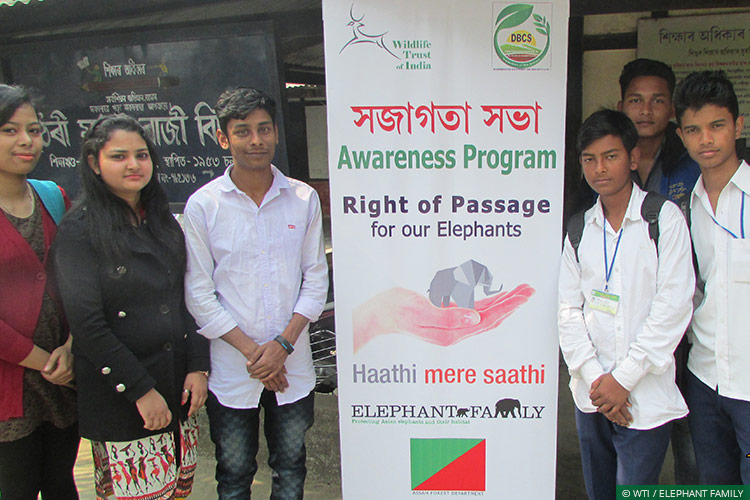
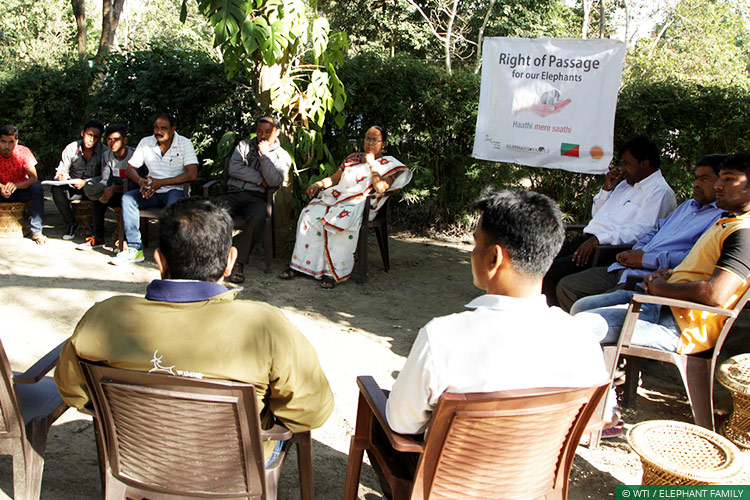
The GCCs have helped organise several awareness events including art competitions, essay writing events, and afforestation activities
Karbi Anglong, Assam, July 17, 2017: Wildlife Trust of India (WTI) and Elephant Family, with support from the Assam Forest Department, have developed a cadre of local individuals called the Green Corridor Champions (GCC) to help secure four crucial elephant corridors – Amguri, Kanchanjuri, Deosur and Panbari – in the Kaziranga-Karbi Anglong landscape in Assam. GCC teams have been put together in partnership with two regional organisations, BHUMI and the Duarbagori Cooperative Society Limited (DBCSL).
In coordination with the WTI-Elephant Family team, the GCCs are working to sensitise developmental agencies and local authorities so that no activities detrimental to animal movement take place in these elephant corridors. In addition, they are undertaking awareness campaigns to build a social momentum for the protection of the corridors among communities that reside in and around them.
The first such campaign was initiated alongside the introductory meetings that WTI and Elephant Family held for GCC members towards the beginning of the year. Various activities that could potentially help local communities engage with the securement and protection of corridors were discussed during meetings held at the Centre for Wildlife Rehabilitation and Conservation (CWRC), Assam and the Amguri Public Conference Hall. Meetings were also arranged with the villagers of Amguri in which Mr Ataur Rahman, the Managing Director of DBCSL, discussed the Amguri corridor which connects the elephant habitats of Kaziranga National Park and Kukurakata Reserve Forest with those of Bagser Reserve Forest and Karbi Anglong Reserve Forest. Mr Rahman also sensitised the (approximately 60) villagers about the underlying causes of human-elephant conflict in the area.
Considering the importance of students and local youth, a number of conservation awareness campaigns have been initiated in different schools in corridor and fringe villages.
Considering the importance of students and local youth in the conservation of elephants and other wildlife, a number of awareness campaigns have also been initiated in different schools in corridor and fringe villages over the last seven months. WTI, Elephant Family and the GCCs have conducted 11 awareness programmes at 12 schools in Panbari, Deosur, Kanchanjuri, Kuthori, Baghmari, Natundanga, Rangaloo and Amguri. These programmes have helped sensitise more than 1200 students about elephants and their habitat, the importance of corridors, and human-elephant conflict.
Events organised during these programmes have included art competitions, essay writing competitions, debates, and quizzes based on themes like ‘Elephant’, ‘Elephant in Nature’, ‘Human-Elephant conflict’ etc. Interactive sessions have also been organised on environmental issues, the causes of human-elephant conflict, and the importance of elephant corridors.
A rally organised by DBSCL on World Environment Day, June 5, elicited the participation of 600 students from Kuthori LP School, Baghmari LP School, Kanchanjuri LP School, Deosur LP School, Amguri LP School, Amguri Tea Garden LP School, Natundanga LP School and Rangaloo LP School. The students displayed placards with messages like ‘Plant more trees and make us live’. Saplings were planted in the Kuthori school campus from where the rally began. Essay writing and art competitions were also conducted and prizes were distributed among the students.
WTI plans to tie up with local organisations like DBCSL and BHUMI and form GCCs all across India, thereby institutionalising the involvement of community-based organisations in protecting and securing elephant corridors. The GCCs would work in partnership with WTI to sensitise local communities about the importance of corridors and, with the judicious and appropriate use of social, economic and technical interventions, and the vital support of local governments, help in monitoring and securing these corridors.